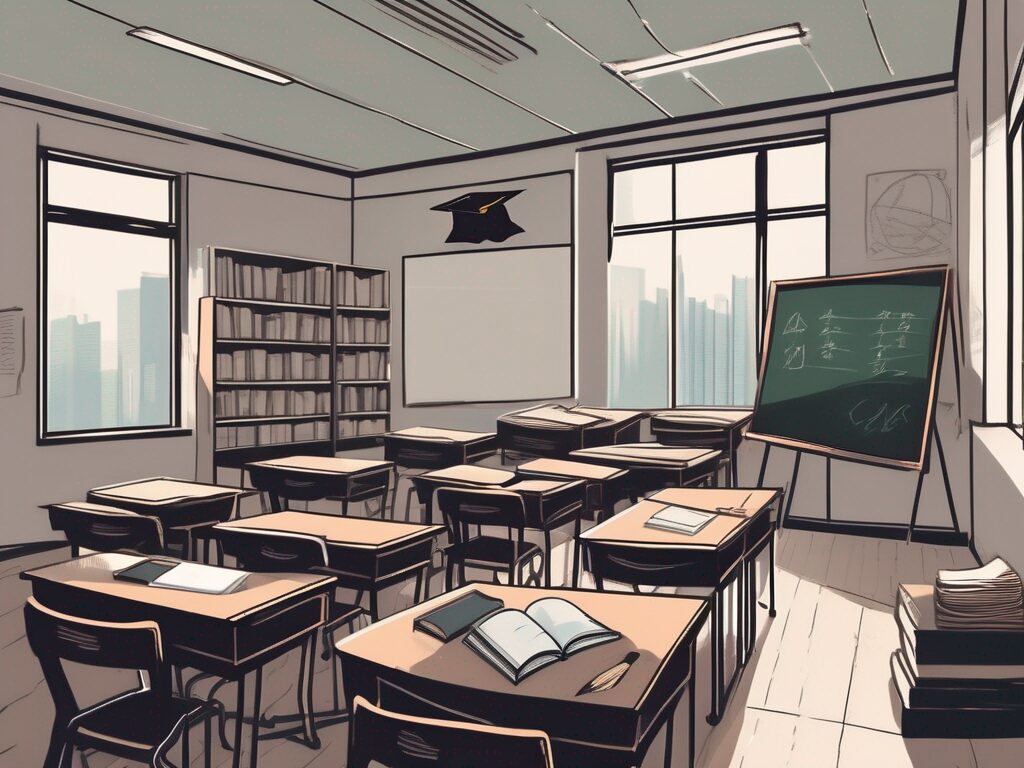Hong Kong, a bustling metropolis known for its towering skyscrapers and vibrant culture, is also a hub of educational excellence. However, teachers with a Master’s in Education often face unique challenges in the public school system. This article delves into five key points that encapsulate these issues, providing an in-depth exploration of each.
1. Overcrowded Classrooms
One of the most pressing issues for teachers in Hong Kong’s public schools is the overcrowded classrooms. With the city’s high population density, classrooms often accommodate a large number of students, making it challenging for teachers to give individual attention.
For teachers with a Master’s in Education, who are trained to provide tailored teaching approaches to students, this can be particularly frustrating. The overcrowded classrooms can limit their ability to implement the teaching strategies they have learned, thereby hindering their effectiveness.
Comparisons with Other Regions
Compared to countries like Finland or Sweden, where the average class size is around 20 students, Hong Kong’s average class size in public schools can be as high as 40. This stark difference illustrates the magnitude of the issue faced by teachers in Hong Kong.
2. High-Stakes Testing Culture
Hong Kong’s education system is known for its high-stakes testing culture. This emphasis on exams and grades can create a stressful environment for both students and teachers.
Teachers with a Master’s in Education, who are trained to focus on holistic education and the overall development of students, may find this culture challenging. The pressure to produce high-performing students can overshadow the importance of fostering creativity, critical thinking, and other essential skills.
Impact on Teaching Methods
The high-stakes testing culture can also influence teaching methods, with teachers often resorting to rote learning techniques to ensure students perform well in exams. This approach can limit the opportunities for teachers to employ more engaging and interactive teaching methods that promote a love for learning.
3. Limited Resources
Despite being one of the world’s leading financial centres, resource allocation in Hong Kong’s public schools can be limited. This can pose challenges for teachers, particularly those with a Master’s in Education, who are trained to utilise various resources to enhance teaching and learning.
From outdated textbooks to a lack of technological tools, these limitations can hinder the ability of teachers to deliver high-quality education. It can also impact their ability to implement innovative teaching strategies that require specific resources.
Comparisons with Private Schools
When compared to private schools in Hong Kong, which often have access to a wealth of resources, the disparity becomes even more apparent. This can lead to a gap in the quality of education provided, with students in public schools potentially missing out on valuable learning opportunities.
4. Language Barriers
Language barriers can also pose significant challenges for teachers in Hong Kong’s public schools. With Cantonese as the primary language of instruction in many schools, teachers who are more comfortable with English may struggle to communicate effectively with their students.
For teachers with a Master’s in Education, this can be particularly challenging as they are trained to communicate complex concepts effectively. Language barriers can hinder this, potentially impacting the quality of education delivered.
Impact on Student-Teacher Relationships
Language barriers can also impact the development of strong student-teacher relationships, which are crucial for effective teaching and learning. If students struggle to understand their teacher, it can lead to feelings of frustration and disengagement, impacting their learning experience.
5. High Workload and Stress
Finally, the high workload and stress associated with teaching in Hong Kong’s public schools cannot be overlooked. From lesson planning to marking assignments and managing administrative tasks, teachers often find themselves juggling multiple responsibilities.
For teachers with a Master’s in Education, who are trained to invest significant time and effort into developing comprehensive lesson plans, this high workload can be particularly challenging. The stress associated with this can impact their wellbeing and job satisfaction, potentially leading to burnout.
Comparisons with Other Professions
When compared to other professions, the workload of teachers in Hong Kong’s public schools is significantly higher. This, coupled with the relatively low pay, can make teaching a less attractive profession, despite the critical role it plays in society.
In conclusion, while Hong Kong’s public schools offer a unique teaching environment, they also present several challenges for teachers with a Master’s in Education. From overcrowded classrooms to high-stakes testing culture, limited resources, language barriers, and high workload, these issues need to be addressed to enhance the quality of education in Hong Kong’s public schools.
Enhance Your Teaching Career in Hong Kong with The IQTS at UWE
Understanding the challenges faced by teachers with a Master’s in Education in Hong Kong’s public schools, The IQTS at UWE presents the International Qualified Teacher Status (iQTS) Programme, a beacon of support for educators. If you’re striving to meet the high qualification standards of international schools, seeking career progression, or looking to connect with a global professional community, the iQTS programme is your gateway to success. With a 50% increase in interview callbacks, a 45% higher promotion rate, and a 30% salary boost, the iQTS not only equips you with a deeper understanding of international curricula but also offers flexible online study options to balance your professional development with your teaching commitments. Make Your Next Step towards a fulfilling teaching career in Hong Kong and beyond with the iQTS at UWE.

